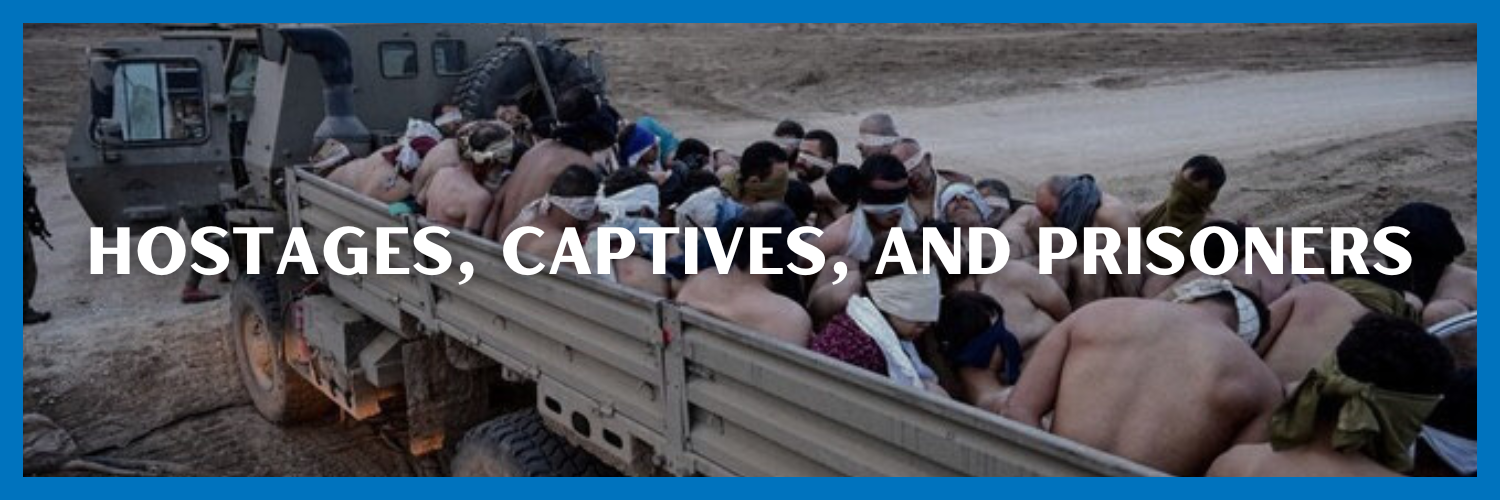Hostages, Captives, and Prisoners
by Jonathan Kuttab
"The Lord has chosen and sent me to tell the oppressed the good news, to heal the brokenhearted, and to announce freedom for prisoners and captives" -Isaiah 61:1
Like many throughout the world, we share in the anguish of the families of the 130+ Israeli hostages, both soldiers and civilians, who were taken captive on October 7 and remain in Hamas captivity. We pray for their safe return and also for their families.
We share also with the anguish of over 12,000 Palestinian captives held in Israeli jails, whose freedom Hamas hoped to obtain by taking Israeli hostages. Some of them were militants caught or accused of violent acts of resistance, but the majority are clearly political prisoners and over 3,400 of them are held without charges or trial. They truly are hostages and captives, and we pray for their restoration to their families (not to mention the bodies of dead captives, on both sides, also being held hostage and denied a proper burial—contrary to the teachings of Islam, Judaism, Christianity, and basic human decency.)
While we do not know the exact conditions under which Israeli captives are being held (in deep tunnels and threatened with the same bombardment and starvation as their Palestinian captors), we have good reasons for knowing the conditions under which Palestinian captives are held.
In fact, the current terrorist (according to Israeli charge sheets) who holds the position of Israeli Minister of National Security, Itamar Ben Gvir, has proudly proclaimed to have single handedly ordered the massive worsening of prison conditions as revenge and retaliation for Hamas’ actions against Israeli hostages. Among the measures he has ordered include:
The confiscation of all books, papers/pens, extra clothes and personal hygiene items
No more daily exercise
Limited electricity, with hours of total darkness and no light
Poor food, of little quantity, so that almost all prisoners have lost 25-40 kilos each (55-88 lb).
No cigarettes or canteen supplies
No changes of clothes or underwear since Oct. 7
No family visits and rare, if any, lawyers’ visits
No visits by the International Committee of the Red Cross (ICRC)
No phone calls to family or lawyers
Frequent beatings, constant humiliations, and utterly dehumanizing interactions
In the best of times, prisons are awful institutions wherein wardens have total control over the lives and activities of prisoners, but there is a certain minimum beneath which conduct must not descend. When Christ ordered us to visit the sick and those in prison (Matthew 25), he was assuming that prison visits would have at least been allowed and that families and friends and good hearted Christians would be permitted to supplement the supplies already provided by prison authorities, as well as provide additional care for needy prisoners.
FOSNA has called in the past for the unconditional release of civilian hostages, has always supported the need for a prisoner exchange, and, in the meantime, insists upon the basic humanitarian treatment of all captives.

